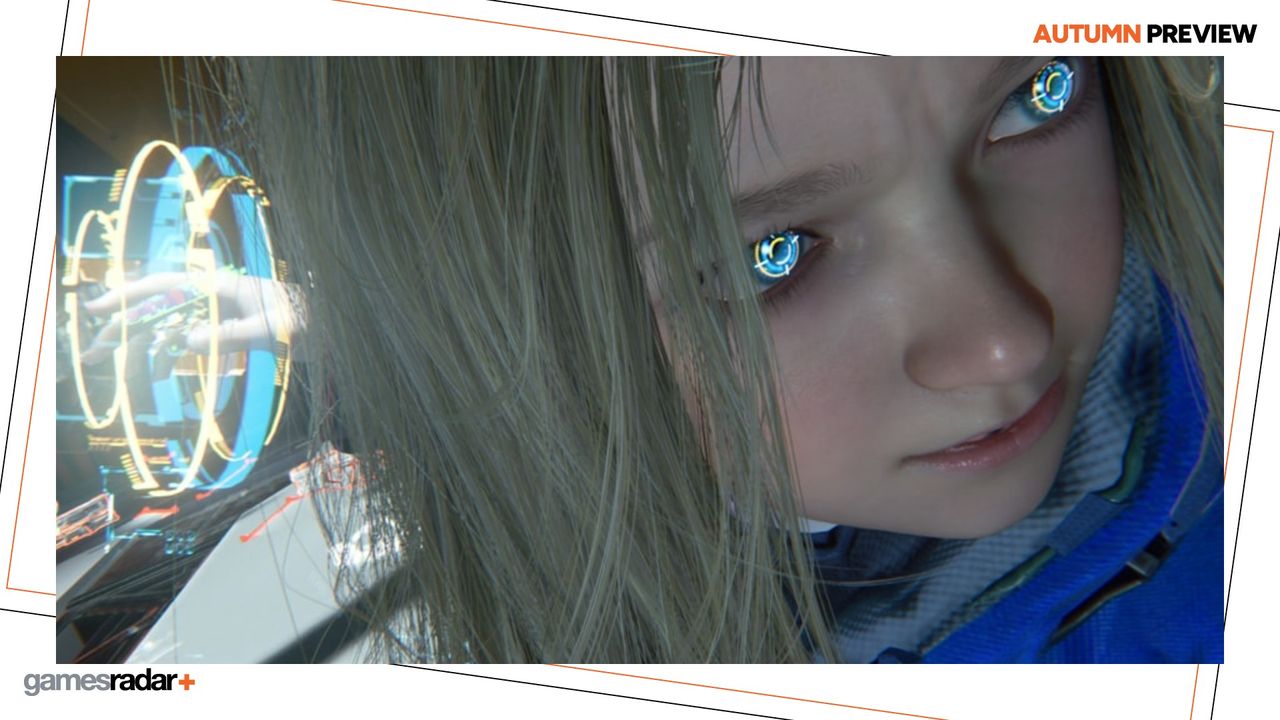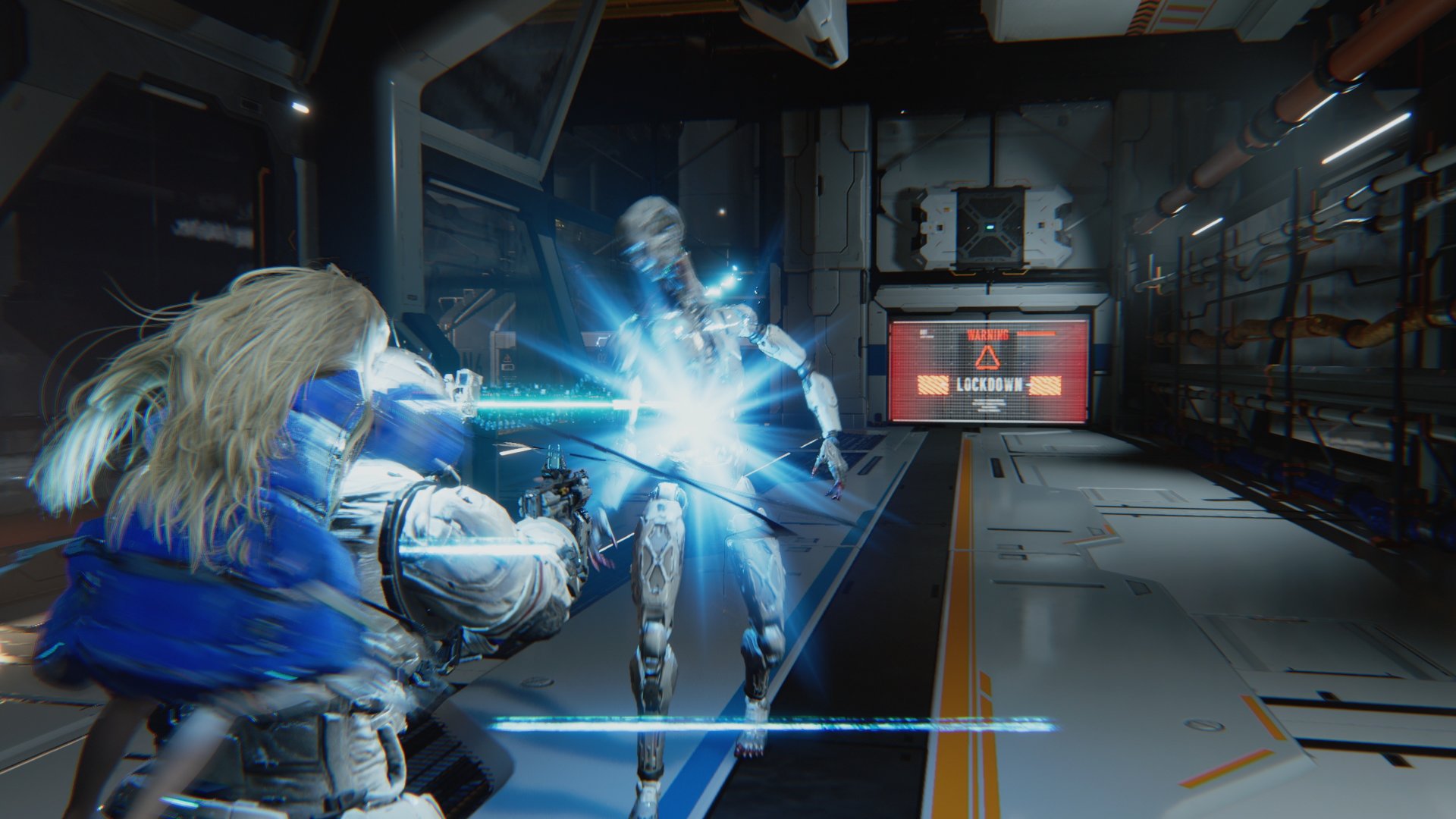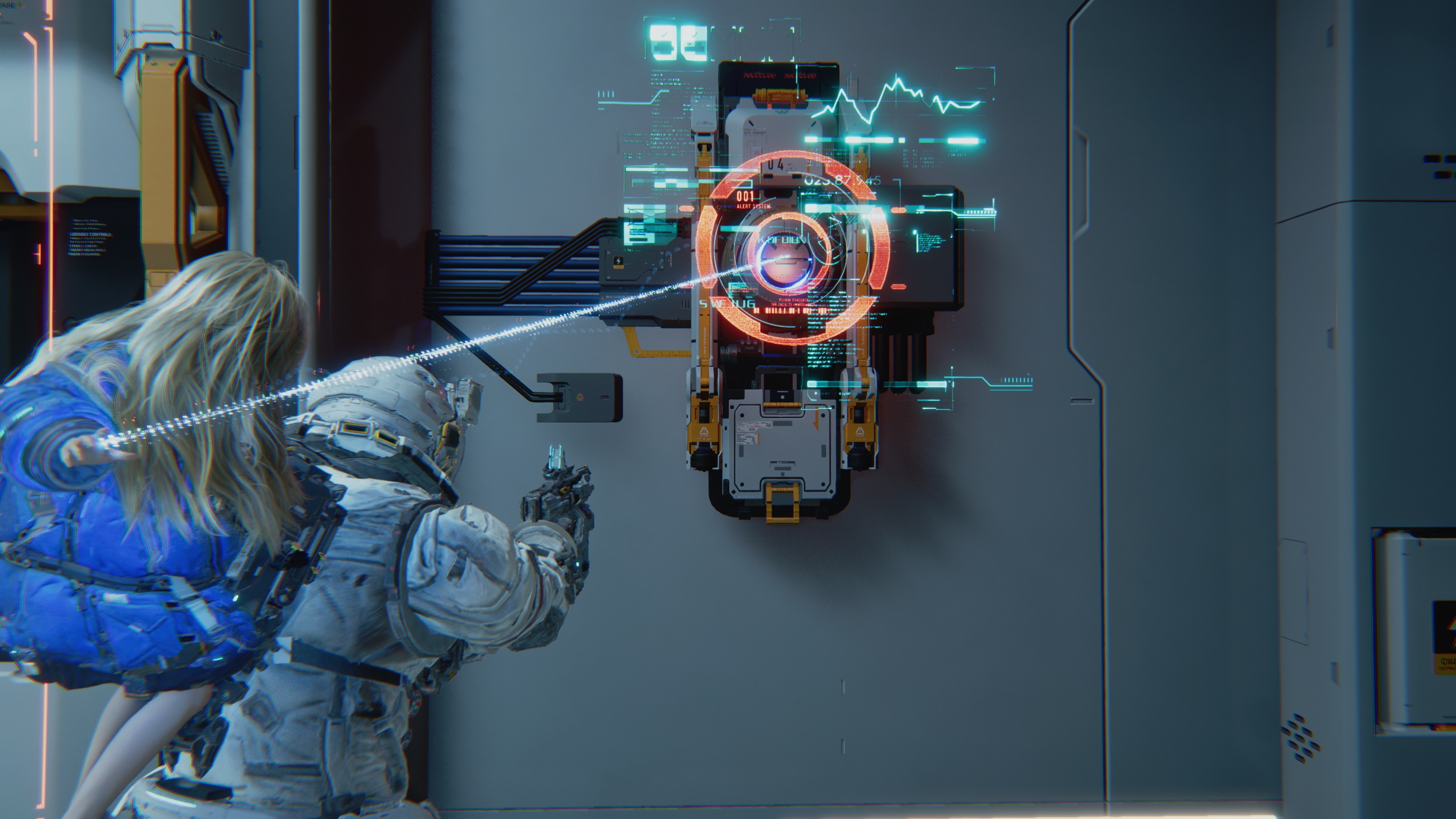
I'm sorry, Pragmata, I wasn't familiar with your game. I'll admit – whenever Capcom's long-delayed sci-fi action game resurfaced (usually to announce another delay), I would receive it with a little bemusement. It looks like a shooter, but why is there a small blonde child piggybacking on the protagonist? Are they in space?
Those were the first questions. Within minutes of starting my Pragmata hands-on, which begins with the aforementioned child performing cellular reconstruction on our protagonist in a space suit, I only had more. But there was one query I wasn't expecting to come away with – can I have more please, Capcom?
Bot to the future

Developer: In-house
Publisher: Capcom
Platform(s): PC, PS5, XSX
Release date: 2026
After being revived by knee-high Diana – who is in fact an android, not a flesh-and-blood child – I'm attacked by a grotesque robot with none of Diana's liveliness. Its humanoid proportions seem to have been wrung and stretched at every limb, and the slow-firing pistol I'm given does almost no damage.
Because of the robot's armor, shooting in Pragmata requires using Diana to hack their armor open. Hold the scepticism: yes, you have to do a hacking minigame to do any real damage, but the minigame is so simple and reflexive that it works. You only have to move a square through several marks on a grid, which in turn takes seconds, so instead of feeling tedious it adds an extra layer of quick-thinking – thanks in part to the fact that robots don't stand and wait for you to finish hacking them.
Being damaged closes the hacking screen, which forces you to maintain space – using the thrusters on your suit for last-second dodges – until there's a lull to pull the hack off. Again: I think it's a case of 'you'll have to play it to believe me', but it's legitimately very fun.
Hacking plays a large part in traversal, too. To get through an airlocked door, I had to work through a near-platforming segment that involved finding six hackable entry points (all scattered across platforms, because fuck technicians) using my thrusters.
Movement feels weighty – thanks in part to your chunky space suit and the android child clinging to your back – and that in turn feeds back into combat. Your default Grip Pistol is slow-firing and even slower to recharge its six-shot battery; not to mention near-useless if you don't first open a window of vulnerability with Diana.
Dream team

Beneath the seemingly inscrutable sci-fi whimsy, Pragmata is deceptively straightforward.
On the other hand, the Shockwave requires getting real close to be effective but feels like a spring-loaded rocket launcher at close range, while another weapon is effectively a futuristic netgun that locks targets down long enough to hack them.
Interestingly, these guns aren't permanent – you find them as pick-ups with limited ammunition, so I found myself cycling between the lot depending on what was available. It's not quite punishing enough to go full survival horror – you'll have to wait, Resident Evil Requiem fans . Rather, it turns guns into old-school power-ups and in tandem with a deliciously over-eager electronic score, Pragmata is much more old-school than you might expect.
The hands-on ends with a battle against a large mech, who besides needing to be hacked also needs to be shot at a specific fuel tank on its back. The fight is significantly faster-paced than anything prior – for the first time I'm on the back foot, being flattened by a charging robot every time I try to stop and hack. My time runs out before sealing the deal (my ego insists I tell you I would have won) but it's a promising glimpse of Pragmata with its gloves off.
Though I came into the demo fairly cold on Pragmata, it fell into place within five minutes and only went upwards from there. Beneath the seemingly inscrutable sci-fi whimsy, Pragmata is deceptively straightforward. When Capcom next rolls it out for a showcase – hopefully to add an exact date to its 2026 release window - I'll be keeping both eyes open.
Check out all the upcoming PS5 games still to come this year and next.







